For the last several years, we’ve compiled profiles of women founders and investors at the end of each year because they’ve either raised substantial amounts of money or otherwise achieved notable milestones.
This year, we don’t want to wait until December. We’re too excited about the progress we’re witnessing, with women-led startups getting seed, Series A or later-stage funding each week — all while top venture firms grow more serious about pulling women into their most senior ranks, female VCs band together to fund female founders and other women go about launching their own funds.
Some of you will note that this list is far from comprehensive, and we’ll readily agree with you. But we think it’s better to celebrate the accomplishments of some of the women who deserve attention than try to capture every last person we’d include if only there were more hours in the day.
Herewith, a list of 25 founders and investors who’ve had a pretty good 2018 so far, with a second list of women in the industry coming shortly, so stay tuned.
Brynn Putnam, founder and CEO of Mirror

Harvard grad Brynn Putnam was once a professional ballet dancer, but she may eventually find more fame as a serial founder. Two years after her last performance in 2008 with a ballet company in Montreal, Putnam started a New York-boutique fitness studio, Refine Method, around a high-intensity, interval workout. It would later sprout into three studios in New York and attract the likes of Kelly Ripa and Ivana Trump.
Now, Putnam is using its founding principal — that gym users can wring more from their workout hours — to build yet another business called Mirror. Centered around an at-home device, it looks like a mirror but enables users to see an instructor and classmates for fitness routines like Pilates, all while tracking their performance on screen. Mirror isn’t available to buy yet, but investors are already sold, providing the company with $13 million in funding earlier this year so it can bring its product to fitness buffs everywhere.
Ritu Narayan, co-founder and CEO of Zūm
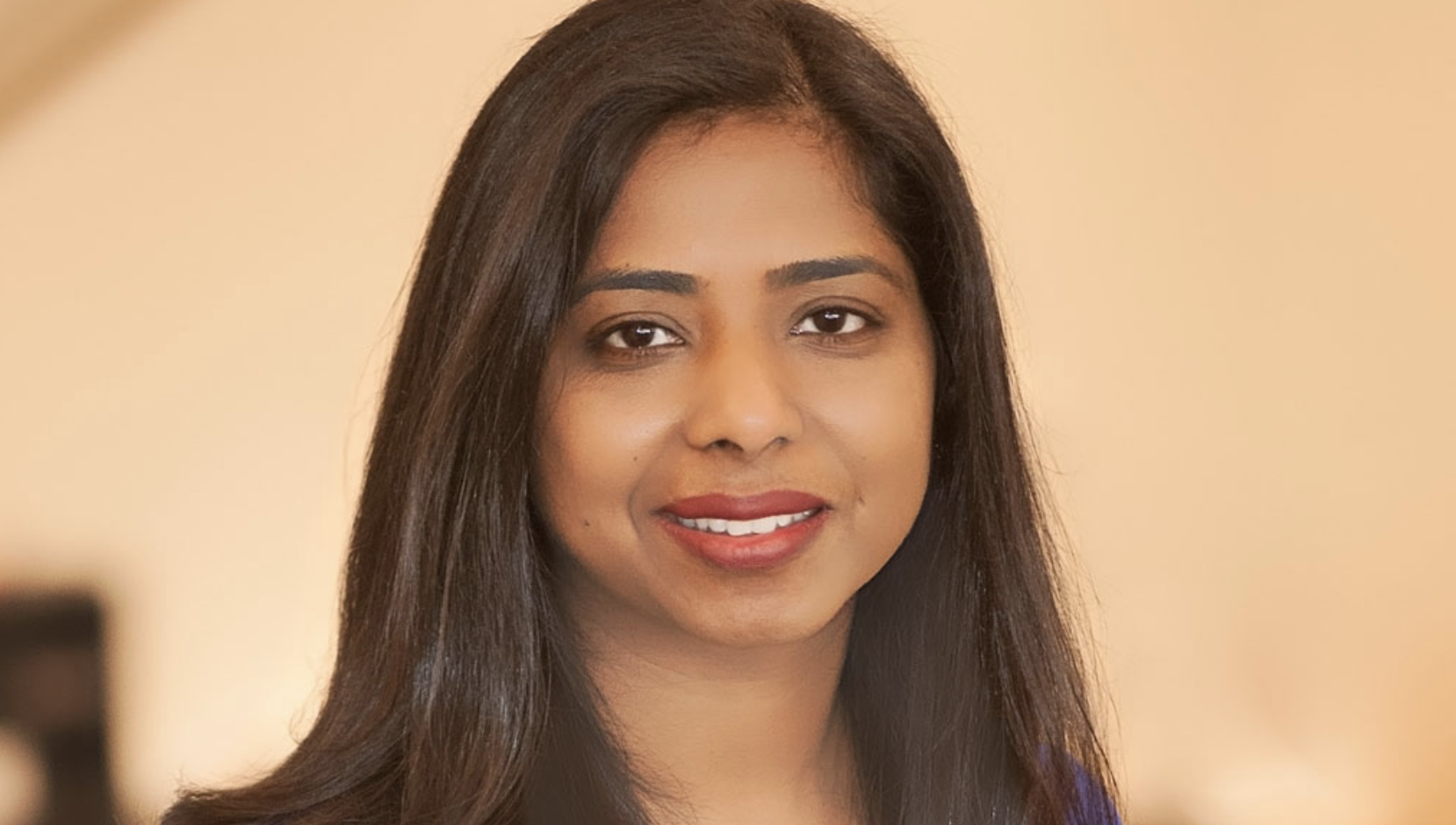
Ritu Narayan led product management at stalwart tech companies, including Yahoo and eBay, but her biggest challenge eventually became how to ensure that her kids got to where they needed to go during her working hours. She knew she wasn’t alone; there are roughly 73 million children under age 18 in the U.S., many of whom are driven around by frenzied parents who are trying to make it through each day.
Enter Zūm, a now 3.5-year-old company that promises reliable transportation and care for children ages five and older. Zūm isn’t the first kind of Uber for kids. In fact, another competitor, Shuddle, shuttered in 2016 after burning through more than $12 million in funding. But Narayan’s company appears to be doing something right. Earlier this year, Zūm raised $19 million in Series B funding, including from earlier backer Sequoia Capital, which is famously metric driven.
The company has now raised $26.8 million altogether.
Daniela Perdomo, co-founder and CEO, goTenna

When Hurricane Sandy cut off power in and around New York City in the fall of 2012, Daniela Perdomo and her brother, Jorge, were struck by the need for a network that would enable people to call or text even when there’s no Wi-Fi or cell signal. Today, that company, goTenna, is taking off, powered by an early device it created that pairs with a cell phone via Bluetooth to transmit messages using radio frequencies, along with a newer version of the device that allows them to create a kind of mesh network.
To date, the company has sold more than 100,000 units of its devices. It has raised roughly $17 million from VCs. In May, the company also partnered with an outfit called Samourai Wallet to launch an Android app that, beginning this summer, will enable users to send bitcoin payments without an internet connection. The move could prove crucial for some of its customers, particularly in disaster areas.
Chloe Alpert, CEO and co-founder of Medinas Health
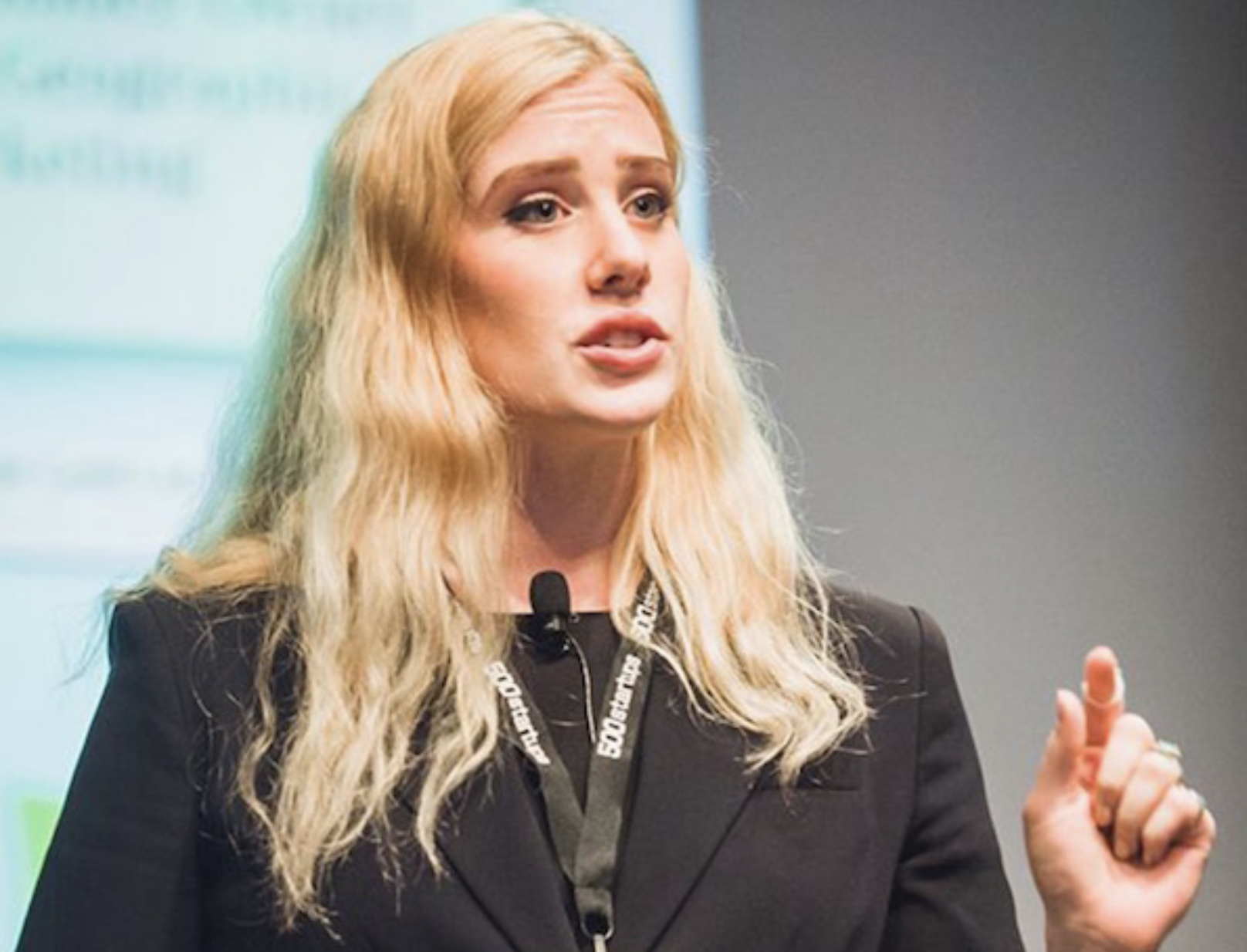
Hundreds of billions of dollars’ worth of surplus medical supplies are discarded every year, according to Chloe Alpert, the founder of Medinas Health, a Berkeley, Calif.-based startup that uses inventory data and matching software to help big hospitals sell excess equipment to small clinics and nursing homes.
Alpert thinks Medinas can create cost savings for both sides by creating something that’s fast and trustworthy and working with third parties who can disassemble, ship and re-assemble medical equipment.
Investors believe her surplus marketplace has a shot. Her 10-month-old company raised $1 million in funding earlier this year, including from Sound Ventures, Rough Draft Ventures, Precursor Ventures and Trammell Ventures.
Phaedra Ellis-Lamkins, co-founder of Promise
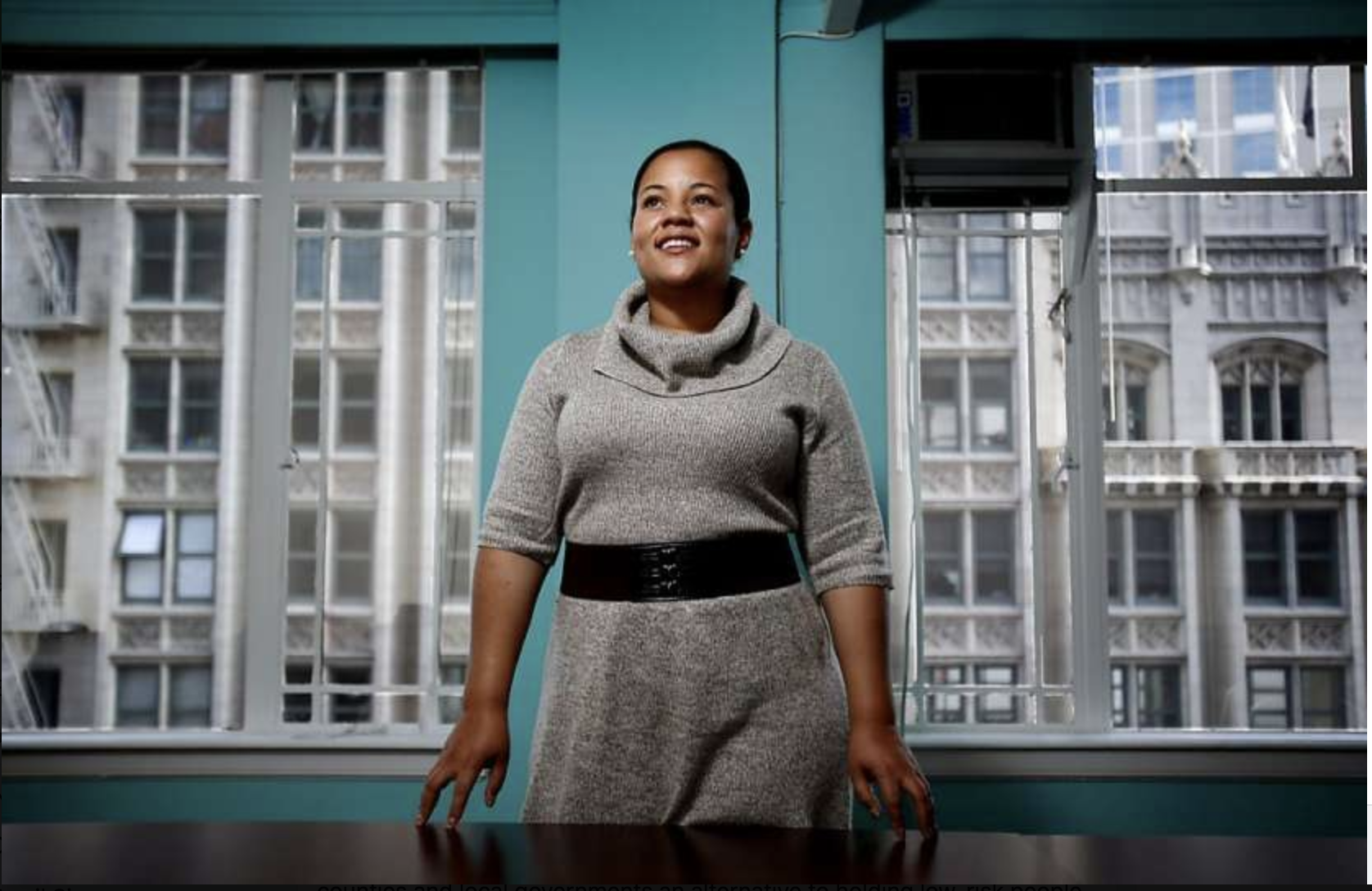 Phaedra Ellis-Lamkins was raised by a single mom who occasionally fed her two daughters with food stamps before a union job enabled the three to escape welfare. But that formative experience made a lasting impact. In fact, after graduating from college, Ellis-Lamkins worked for a union that helped organize low-wage home care. By the time she was 26, she was head of the San Jose-based South Bay Labor Council.
Phaedra Ellis-Lamkins was raised by a single mom who occasionally fed her two daughters with food stamps before a union job enabled the three to escape welfare. But that formative experience made a lasting impact. In fact, after graduating from college, Ellis-Lamkins worked for a union that helped organize low-wage home care. By the time she was 26, she was head of the San Jose-based South Bay Labor Council.
Ellis-Lamkins is far from done in her work to ensure that the disadvantaged can prosper. Her newest project: working in partnership with governments that release people from jail on condition that they work with her company, Promise. The big idea: Promise provides support to people caught in the criminal justice system to ensure they can return to their jobs and families until their case in resolved, rather than remain incarcerated because they can’t afford bail. The latter scenario happens all too often, agree VCs. Toward that end, earlier this year a handful of investors — including First Round Capital, Jay-Z’s Roc Nation, 8VC and Kapor Capital — provided Promise with $3 million to help put an end to it.
Jesse Genet, founder and CEO of Lumi
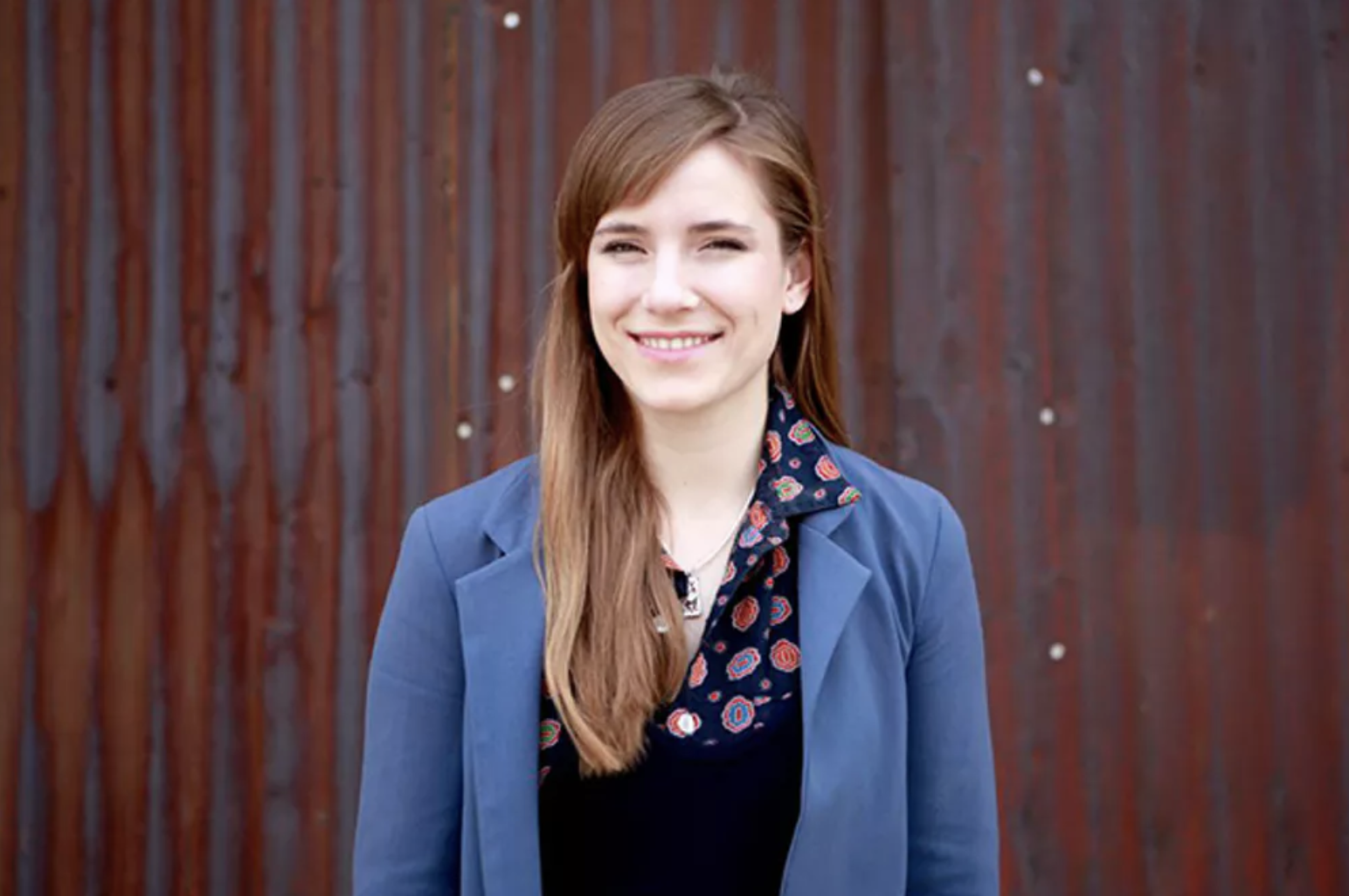
In 2014, Jesse Genet was trying to convince a panel of investors on “Shark Tank” to write her a $250,000 check for five percent of her company, which, at the time, sold photo printing kits online. Genet left empty-handed, but she didn’t give up, instead turning her company, Lumi, into a business that designs and supplies beautiful packaging for many top e-commerce companies that sell directly to consumers. It also landed $9 million in funding earlier this year led by Spark Capital, with participation from Forerunner Ventures and earlier investor Homebrew.
It’s been a process, but Genet seems to have anticipated it would be, telling Business Insider back in 2015, “One key thing is not to rush your own business . . . Even if you’re not making a ton of money, that experience of just living the company day-in and day-out, getting that feedback and experience, is something you can never replace.”
Sarah Guo, general partner, Greylock Partners

Sarah Guo didn’t necessarily set out to become a venture capitalist. She certainly didn’t imagine she would become one of the most senior investors at one of the oldest venture firms in the country. Yet Guo is both of these things, having been promoted last month to general partner at 53-year-old Greylock Partners five years after joining the firm as a principal.
For Guo, the appointment caps a lifetime spent in the world of startups. Before joining Greylock, she worked as an analyst at Goldman Sachs, where she led much of the bank’s coverage of business-to-business tech companies and advised public clients, including Twitter, Netflix, Zynga and Nvidia.
A graduate (for both her undergraduate degree and MBA) of the University of Pennsylvania, Guo also worked previously at Casa Systems, a 15-year-old tech company that develops a software-centric networking platform for cable and mobile service providers and that — in a twist that we think is pretty neat — was founded by her parents.
Charlotte Fudge, founder and CEO of CentralReach
 CentralReach builds practice management software for the developmental disabilities sector, with a focus on both research and practice. It isn’t the kind of company to make headlines, but the five-year-old, Pompano Beach, Fla., company managed to attract the attention of powerhouse firm Insight Venture Partners. Insight invested an undisclosed amount of funding in the company earlier this year, some of which CentralReach has already used to acquire Chartlytics, a behavioral change analytics software startup.
CentralReach builds practice management software for the developmental disabilities sector, with a focus on both research and practice. It isn’t the kind of company to make headlines, but the five-year-old, Pompano Beach, Fla., company managed to attract the attention of powerhouse firm Insight Venture Partners. Insight invested an undisclosed amount of funding in the company earlier this year, some of which CentralReach has already used to acquire Chartlytics, a behavioral change analytics software startup.
For Charlotte Fudge — a registered nurse who founded CentralReach and continues to lead it as its CEO — the developments have to be exciting. She has spent her career focused on people with autism and related disabilities; having the deep-pocketed support of an investor will presumably help her company reach more people than ever.
Emily Weiss, founder and CEO of Glossier
 Emily Weiss has been called the “millennials’ Estée Lauder.” It didn’t take long for her to get there, either. Indeed, a little more than three years ago, Weiss was still overseeing highly popular blog Into the Gloss when an early meeting with Kirsten Green of Forerunner Ventures helped move Weiss in a new direction: that of selling beauty products that cost a fraction of what some traditional brands charge and are pared back in every other way, too.
Emily Weiss has been called the “millennials’ Estée Lauder.” It didn’t take long for her to get there, either. Indeed, a little more than three years ago, Weiss was still overseeing highly popular blog Into the Gloss when an early meeting with Kirsten Green of Forerunner Ventures helped move Weiss in a new direction: that of selling beauty products that cost a fraction of what some traditional brands charge and are pared back in every other way, too.
Customers are fanatical about the company, whose Instagram counts 1.2 million followers and counting. Investors love the company’s look, too. In February, Glossier closed on $52 million in Series C funding in a round that it characterized as oversubscribed. The company has now raised $86 million altogether.
Anne Boden, founder and CEO of Starling Bank
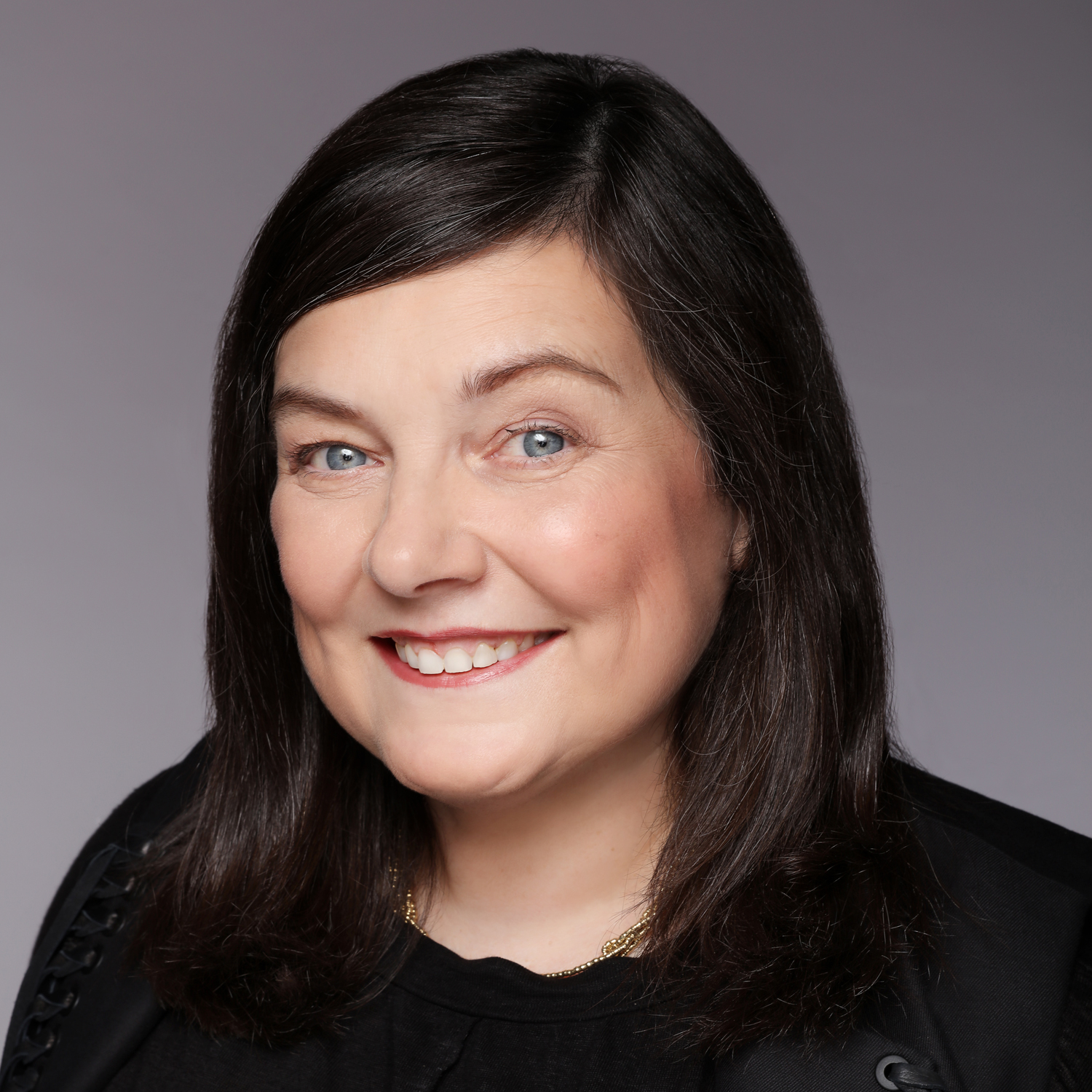
There are powerful women in banking; there are powerful women in tech. Anne Boden is among a small but growing number of powerful women who are straddling both worlds, and her influence seems to grow by the month. The former COO of Allied Irish Banks and a former top executive at RBS and ABN AMRO before that, Boden is now founder and CEO of Starling Bank, a digital-only outfit that does its lending via smartphones, gained its U.K. banking license in 2016 and has big ambitions to expand across much of Europe.
Indeed, as rival challenger bank Revolut eyes the U.S., Starling — which has already raised a reported £48 million by hedge fund manager Harald McPike — is currently looking to raise another £80 million in fresh capital in an investor search that could potentially extend beyond the U.K. The company also quietly blew up a partnership with the fintech unicorn TransferWise, which it had partnered with last year to provide international payments capabilities. As Boden told TechCrunch last month of the move, Starling figured it “could provide a better user experience by doing it ourselves.”
Shruti Merchant, co-founder and CEO of HubHaus
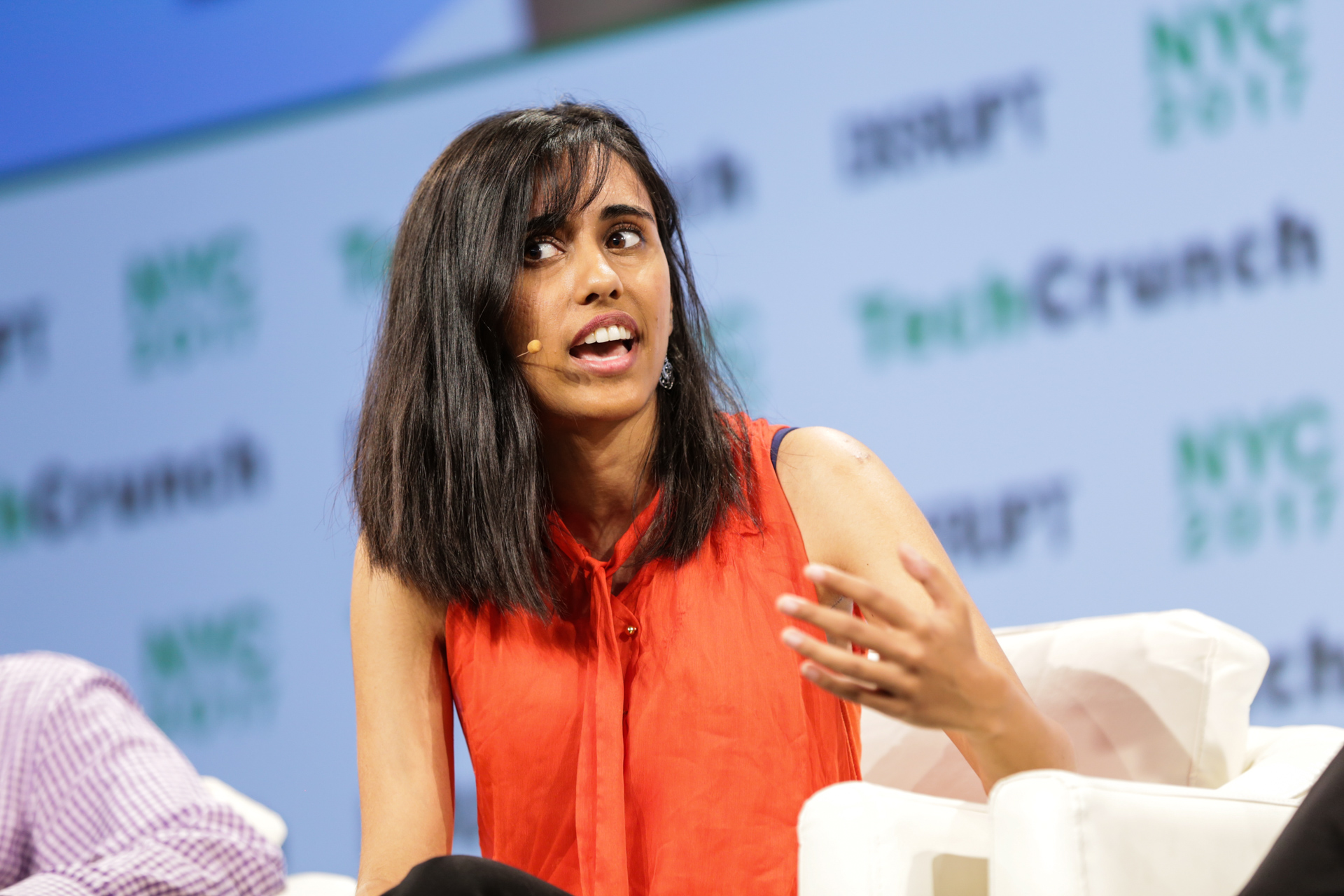
When Shruti Merchant dropped out of a med school program in Concord, Calif., to move 40 miles away to San Francisco, she didn’t know anyone, so she and six other people who discovered each other on Craigslist rented a big house together and . . . they became great friends in the process. Merchant was already trying her hand at entrepreneurship, but the experience made her think a bigger idea might center on managing such co-living situations, so she co-founded HubHaus to do exactly that.
So far, so good, it seems. HubHaus, which rents out large houses and subleases out bedrooms, creating housing communities in the process, now oversees dozens of properties in L.A. and San Francisco. It also raised $10 million in Series A funding earlier this year, led by Social Capital.
Kathy Hannun, co-founder and CEO of Dandelion
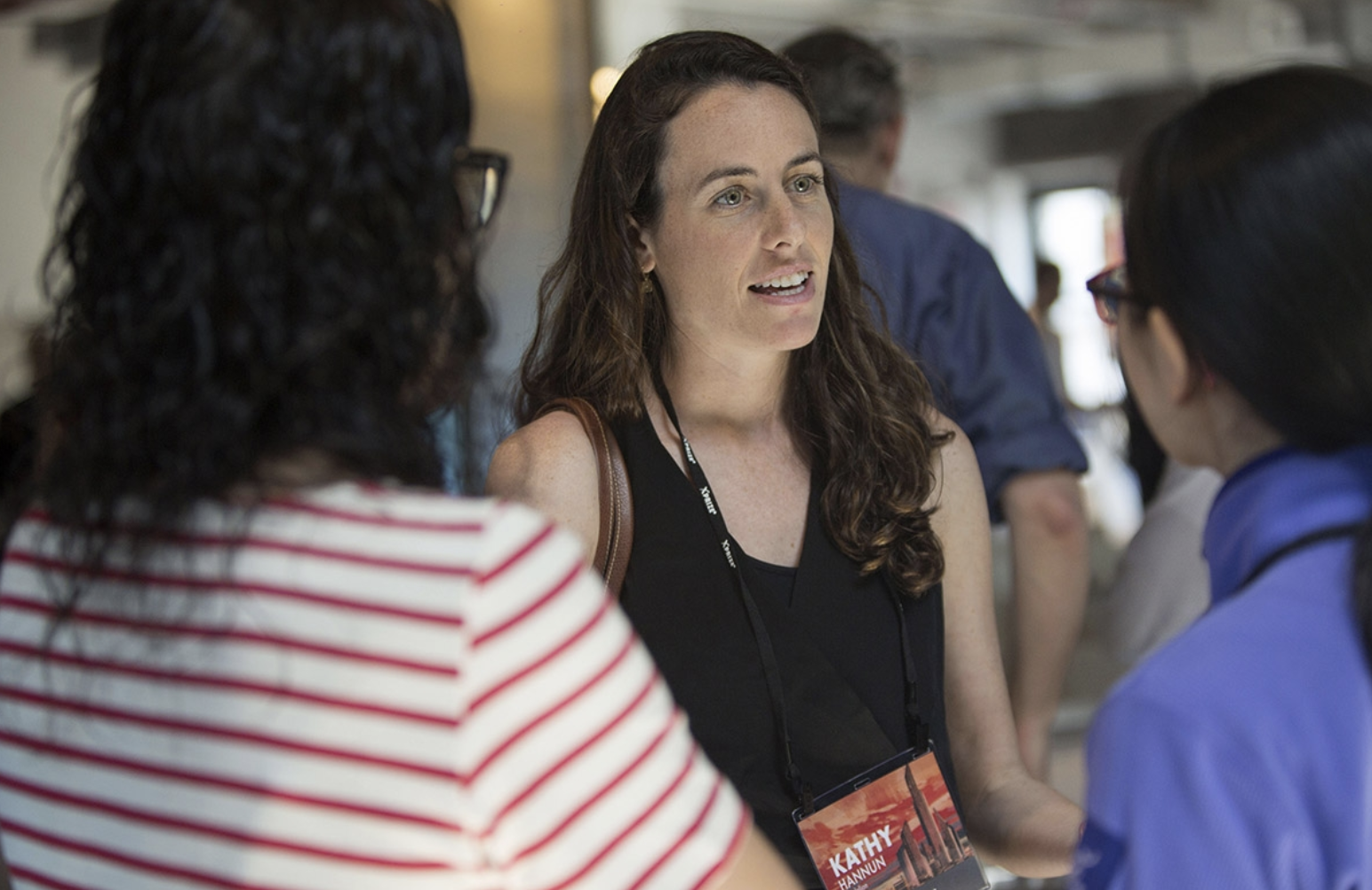
Nearly straight out of college, Kathy Hannun was brought onto the evaluation team of Alphabet’s X group, which is responsible for coming up with the next “moonshots” for the company. Eventually, she and several colleagues spied an opportunity too good not to pursue independently. The end result: Dandelion Energy, which says it makes “geothermal heating and air conditioning so efficient, it pays for itself.”
Investors certainly don’t mind relying on Dandelion. New Enterprise Associates, BoxGroup and others provided the year-old, Brooklyn-based company with $4.5 million in fresh funding earlier this year, bringing its total funding to $6.5 million to date. The day after the new round closed, Hannun had a baby.
Ran Ma, co-founder and CEO of Siren
 Ran Ma spent years as a biomedical engineer at Northwestern University and, before that, as research assistant at Johns Hopkins Hospital, working in nephrology, including as it relates to kidney disease. In those roles, Ma learned plenty, including that kidney disease impacts up to 40 percent of diabetics, and that diabetes afflicts roughly 400 million people — a giant percentage of whom are unable to feel pain from ulcers and gangrene, which can lead to amputations.
Ran Ma spent years as a biomedical engineer at Northwestern University and, before that, as research assistant at Johns Hopkins Hospital, working in nephrology, including as it relates to kidney disease. In those roles, Ma learned plenty, including that kidney disease impacts up to 40 percent of diabetics, and that diabetes afflicts roughly 400 million people — a giant percentage of whom are unable to feel pain from ulcers and gangrene, which can lead to amputations.
It’s those kinds of stats that compelled her to start Siren, a three-year-old, Copenhagen- and San Francisco-based company that’s making textile products that empower their wearers, starting with machine-washable and dryer-proof socks that can measure a wearer’s foot temperature to show him or her what’s going on through a connected app. (A heat spot, for example, can signal a burgeoning infection.) Investors certainly like Ma’s approach to helping diabetics detect potential injuries before they become debilitating. They provided the company with $3.4 million in funding earlier this year. Among those footing the bill: DCM, Khosla Ventures and Founders Fund.
Nicki Ramsay, founder and CEO of CardUp
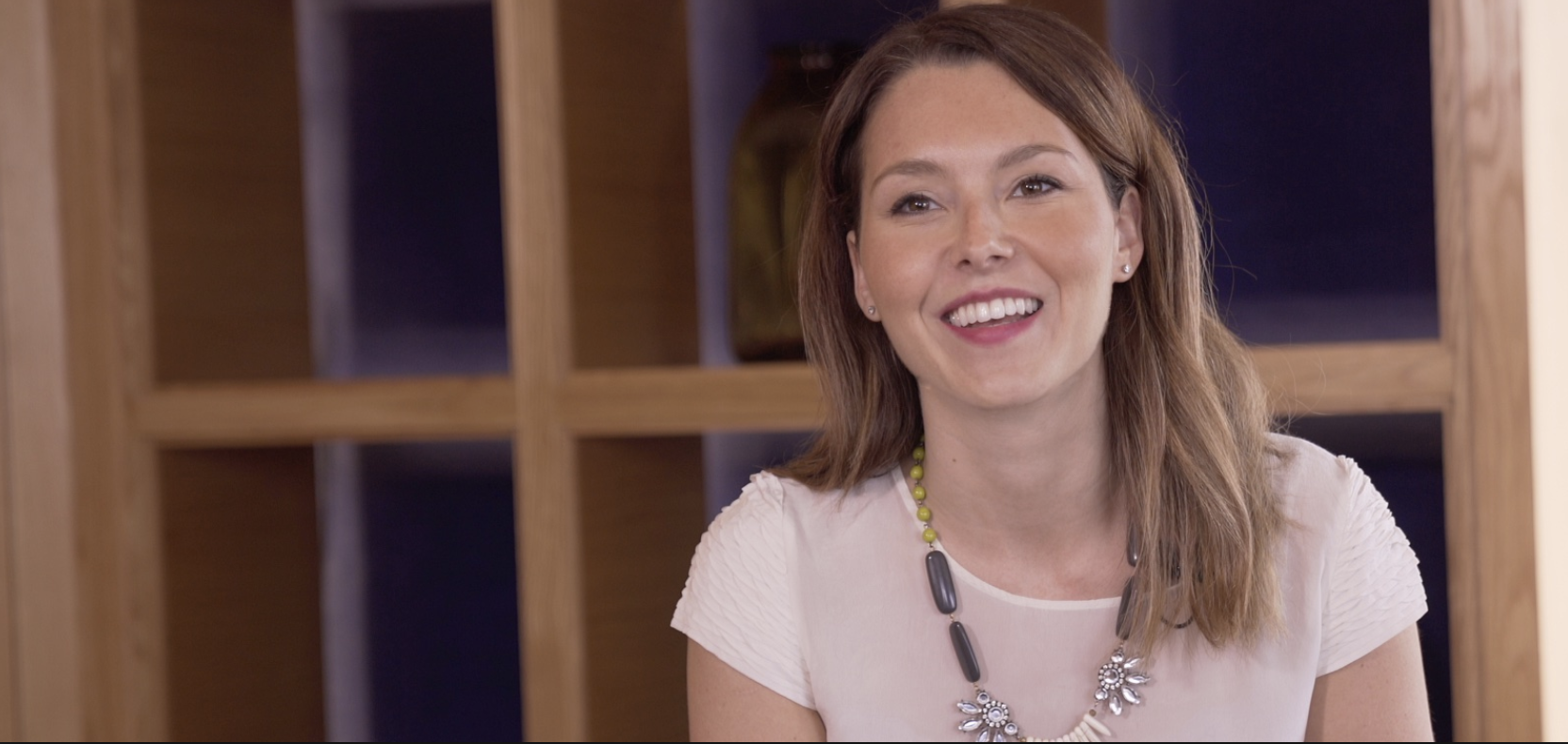
After spending roughly eight years with American Express in a variety of roles, Nicki Ramsay spied an unmet need. Specifically, AmEx customers couldn’t use their credit cards to pay for rent or taxes, among other things. Her solution: CardUp, a company that enables users to set up recurring payments to use their credit cards, from Citi, Visa, MasterCard and elsewhere, to pay for everything from rent to car loans to insurance to — in the case of small business owners — employees’ salaries, all while earning rewards. (Why just pay your rent, when you can pay your rent and get 70,000 air miles in the process?)
Investors clearly like the idea of providing incentives to users willing to use their credit cards as a financing tool. In March, Sequoia India and the seed-stage venture firm SeedPlus gave Singapore-based CardUp $1.7 million in seed funding, money it is using to grow its staff, as well as market itself to a growing number of small- and medium-size businesses.
Gwyneth Paltrow, founder and CEO of Goop
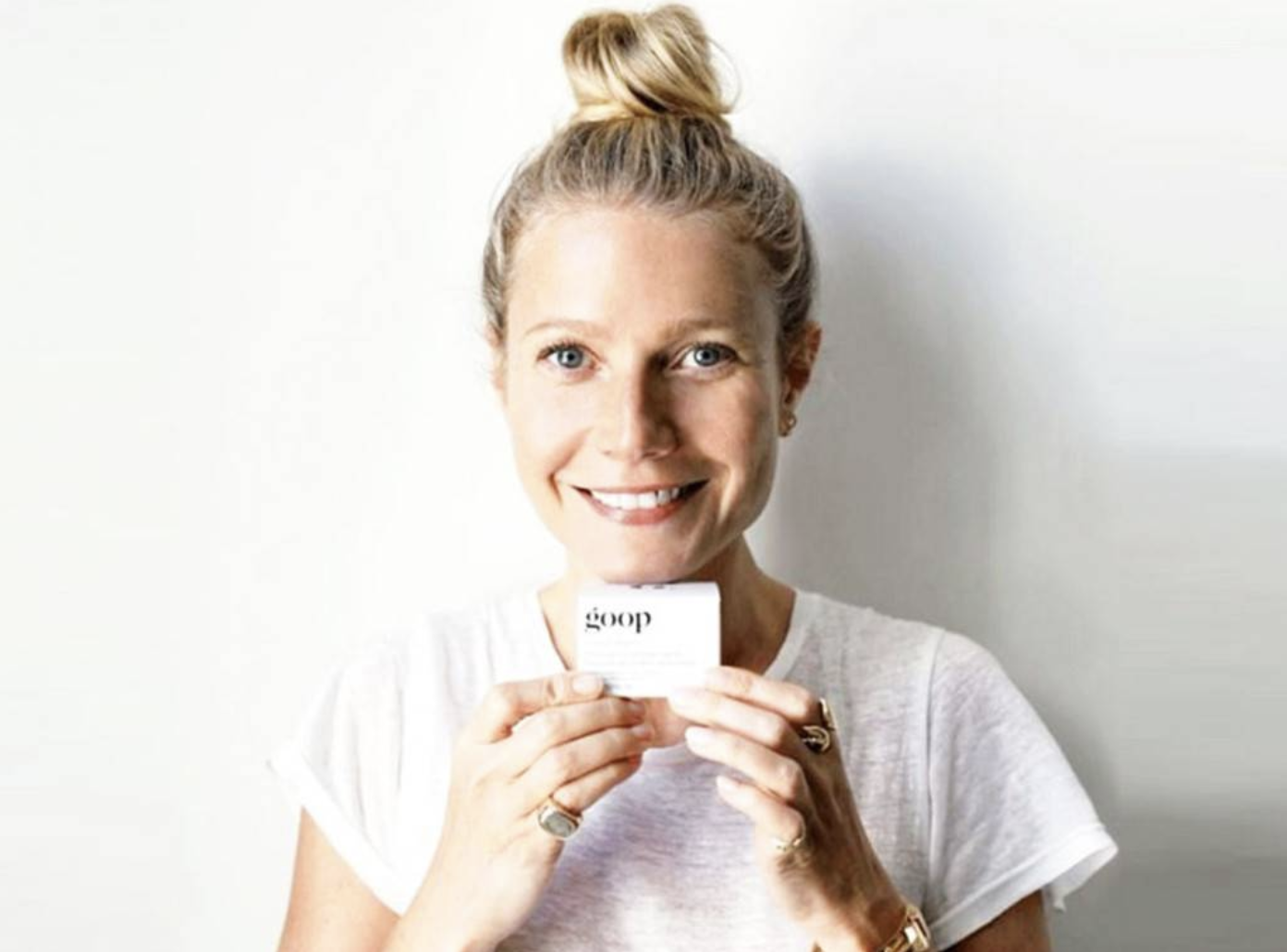
Goop, the wellness newsletter-turned-media and e-commerce company founded a decade ago by actress Gwyneth Paltrow, gets plenty of grief for its highly unscientific advice around vaginal steaming and the dangers of bras. Perhaps most famously, it has marketed jade eggs to its followers, suggesting that they put them in their vaginas to cultivate their sexual energy.
While funny to a great many people, Paltrow may get the last laugh. In March, her 150-person company raised $50 million in Series C funding from new and earlier backers, including New Enterprise Associates, Lightspeed Venture Partners and Fidelity, money that Goop intends to use to expand internationally, including through experiential retail, “image events” and through good-old-fashioned marketing.
Naomi Hirabayashi and Marah Lidey, co-founders of Shine

While Naomi Hirabayashi and Marah Lidey worked together at a nonprofit in New York, they formed their own personal support system with each other and close friends; they wanted to create something like it for others, too. There were already plenty of self-care apps, but none reflected their experience as women of color. As Hirabayashi told TechCrunch earlier this year, “We saw there was something missing in the market because well-being companies didn’t really reach us — they didn’t speak to us. We didn’t see people that looked like us. We didn’t feel like the way they shared content sounded like how we spoke about the different well-being issues in our lives.”
The product they settled on would become Shine, a startup that sends users a daily text with actionable tips around confidence, daily happiness, mental health and productivity to help them get through the day. Investors are feeling good about Shine, too, seemingly. Two years after raising seed capital, the company nabbed $5 million in Series A funding in April led by earlier backer Comcast Ventures, with participation from numerous other outfits, including The New York Times.
Ankiti Bose, co-founder and CEO of Zilingo

Ankiti Bose is the rare female founder in Asia’s startup scene, but that fact doesn’t seem to be slowing down her company in any way. Rather, Zilingo, an e-commerce startup that recreates online the experience of visiting Southeast Asia’s bazaars, raised $54 million in fresh funding in an April round that brings the company’s total funding to $82 million.
Why are investors so enthusiastic? Bose’s background — she worked both as a McKinsey analyst in Mumbai and later an as investment analyst for Sequoia Capital in Bangalore — certainly helps. But so does the market she is chasing. By providing a way for independent merchants to operate online storefronts, Zilingo is managing to compete effectively against the likes of Amazon in what’s expected to be an $88 billion market by 2025.
Aditi Avasthi, founder and CEO of Embibe
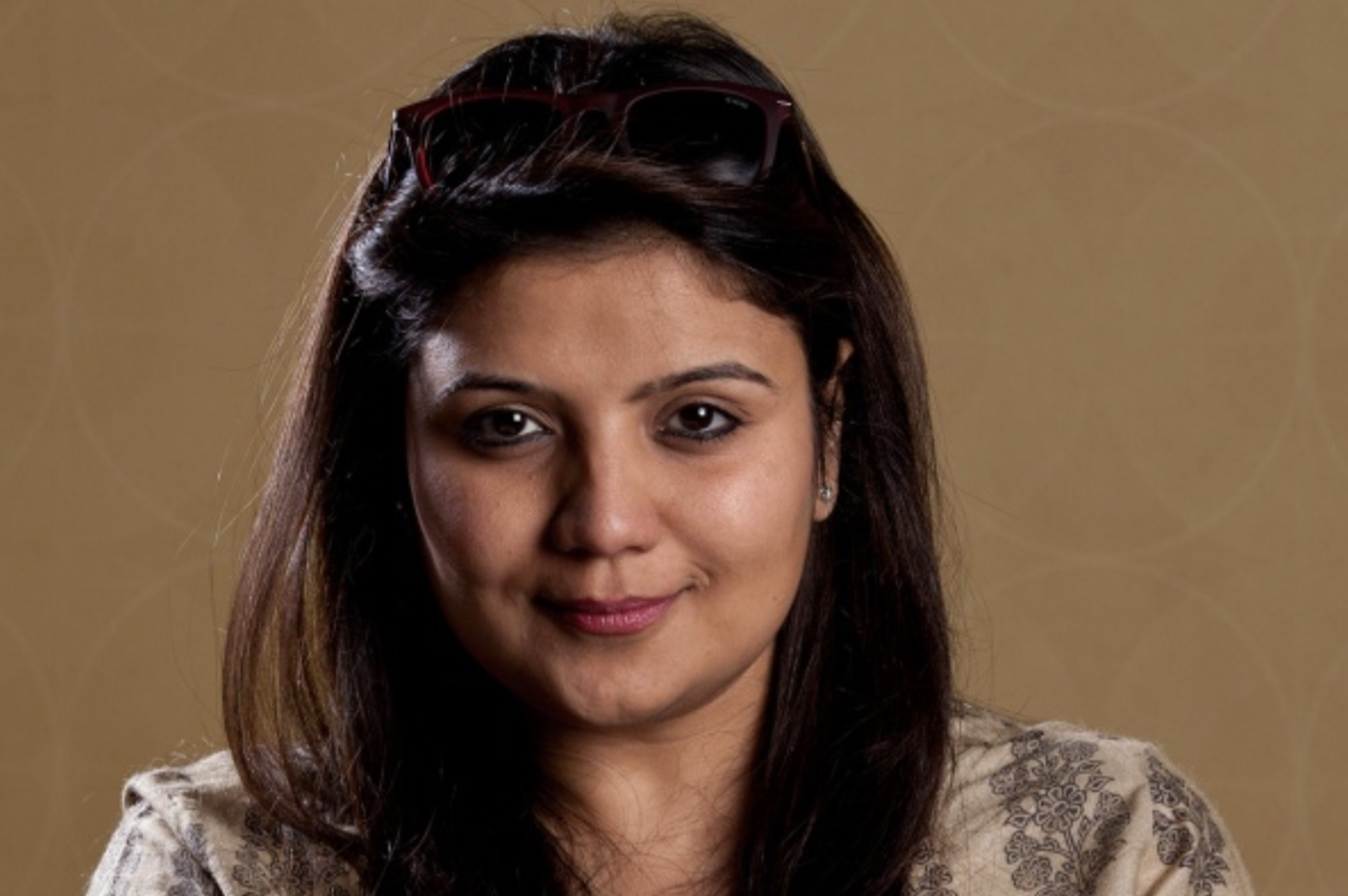
Five years ago, Aditi Avasthi decided to apply what she’d learned about economics at the University of Chicago and two years at Barclays to help students in her home country of India. The result was Embibe, a Bengarulu, India-based online coaching startup that tries to address not only access but also under-performance by taking a forensic approach to everything a student does online and trying to reach them when and where they most need help. The idea is to deliver far more accurate feedback — while simultaneously having to rely on fewer teachers.
Avasthi must be on to something. Earlier this year, the Indian conglomerate Reliance paid out $180 million to the company in exchange for a 73 percent stake in the business, a part of which came from Embibe’e earlier investors. It was a big win for these backers, Kalaari Capital and Lightbox, which appear to have provided Embibe with just $4 million in backing. Of course, it’s none too shabby a development for first-time founder Avasthi, either.
Katie Haun, general partner at Andreessen Horowitz
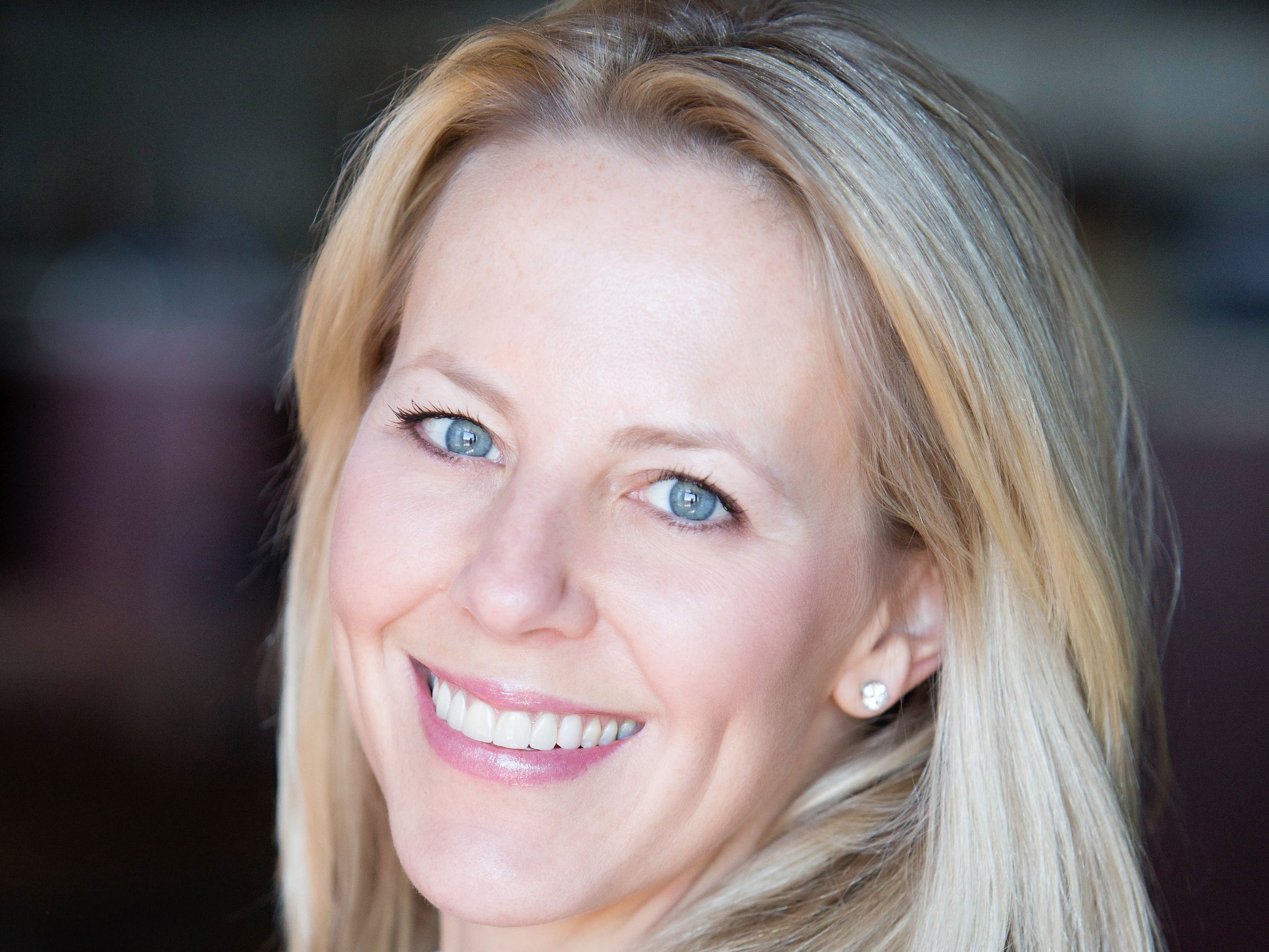
Earlier this week, nine-year-old Andreessen Horowitz (a16z) announced its first female general partner: Katie Haun, whose star has quietly been rising in the Bay Area over for the past couple of years. Haun, who is leading Andreessen’s new $300 million crypto fund with general partner Chris Dixon, is kind of a big deal, so it’s no surprise that a16z nabbed her.
Among her other many accomplishments, Haun spent more than a decade as a federal prosecutor with the U.S. Department of Justice, where she focused on fraud, cybercrime and corporate compliance no-nos alongside the SEC, FBI and Treasury. According to Haun’s bio, she also was the DOJ’s first-ever coordinator for digital assets, and she led investigations into the Mt. Gox hack and the task force that investigated and ultimately took down the online drug marketplace Silk Road. Haun is also a lecturer at Stanford Business School and she’s a director on the board of the digital exchange Coinbase, which was backed early on by a16z.
Sara Mauskopf and Anne Halsall, co-founders of Winnie
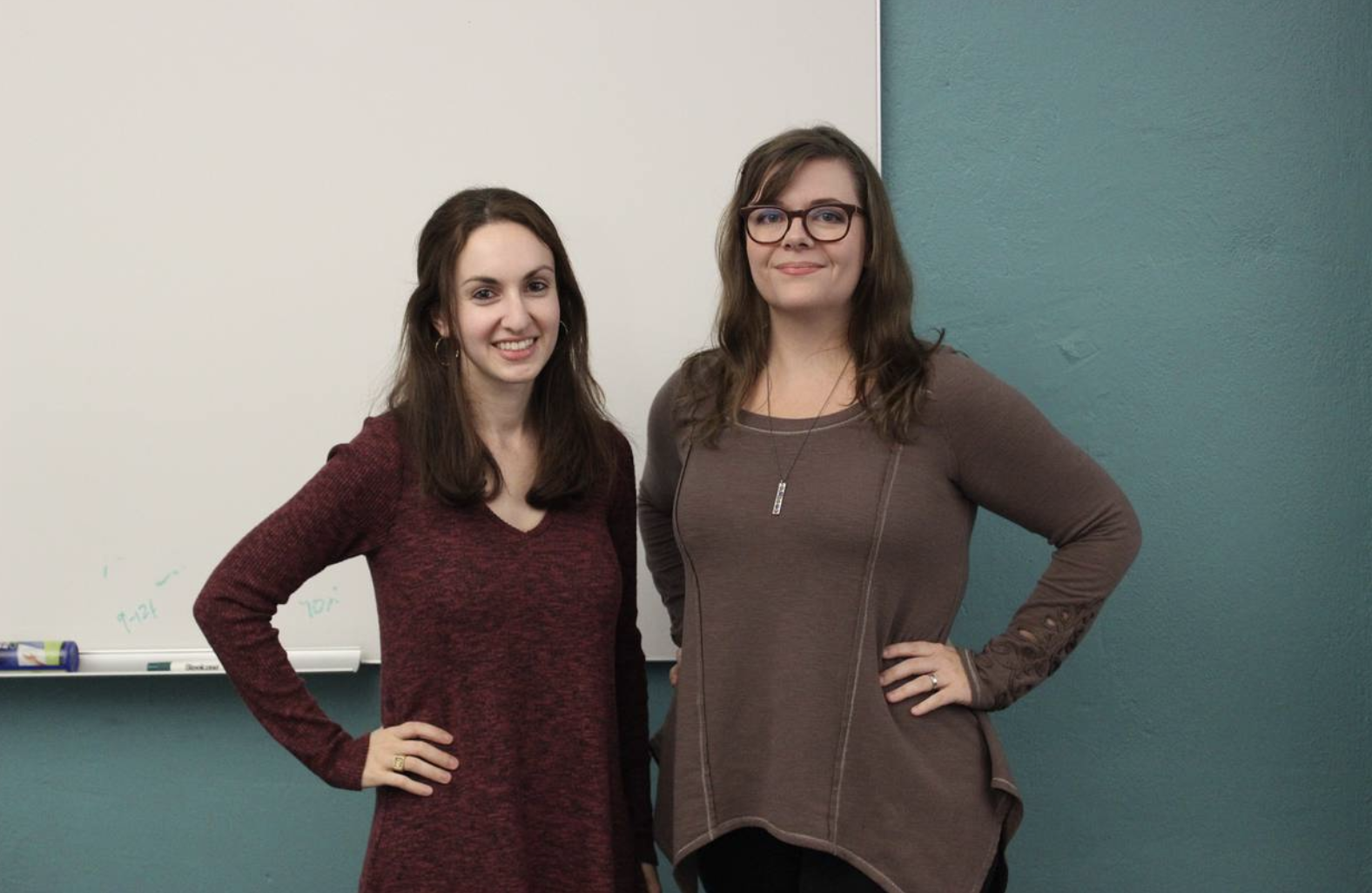
Sara Mauskopf and Anne Halsall know how to build products. Mauskopf spent most of the last decade working on products at Twitter, Postmates, YouTube and Google, while Halsall was doing much the same at Postmates, Quora and Google. No wonder that when the two came together to create Winnie — a mobile app that offers parents information about nearby kid-friendly places, what sort of facilities for families a location may have and, more recently, an online community where parents can ask questions and participate in discussions — investors took notice, investing $2.25 million in the company two years ago.
They haven’t lost interest. Instead, the now two-and-a-half-year-old app, which has reportedly surpassed one million users, just locked down a fresh $4 million in seed funding earlier this week, led by Reach Capital. Winnie has now raised $6.5 million altogether.
Falon Fatemi, founder and CEO of Node
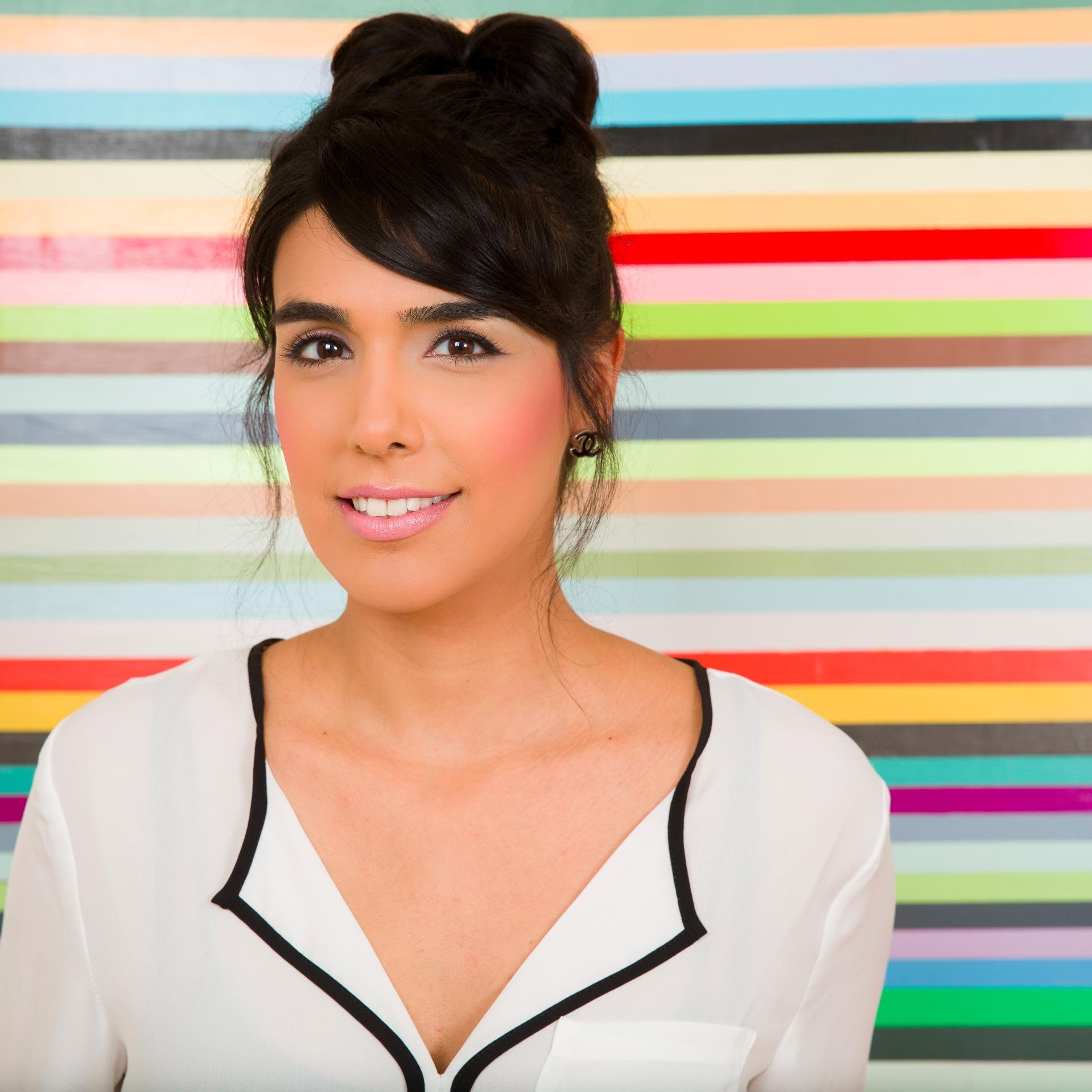
Falon Fatemi used to take pride in becoming Google’s youngest employee at age 19. But after logging four years with the search giant and another two years at YouTube, Fatemi is making her mark by building her four-year-old startup, Node, into an ever-growing operation.
Just in April, the company — which makes an AI-driven search tool that helps people understand who in their professional network can be the most helpful at any one point in time and why — raised $5 million in fresh funding from Recruit Strategic Partners and Jeffrey Katzenberg’s WndrCo. The round brings Node’s total funding to $21 million altogether.
Renee Wang, founder and CEO of Castbox

Renee Wang was born in China and reportedly attended a boarding school in the rural countryside outside Beijing, tutoring her fellow students — while also teaching herself to code. Indeed, after graduating from Peking University with a double major, Wang found herself at Google, where she worked for the company in Tokyo for more than four years. It was there, from inside the search giant’s operations, that she could see spikes in user searches for podcast content and decided there was room for an app to dominate the space.
Enter Castbox, an app that uses natural language processing and machine learning techniques to power some of its unique features, like personalized recommendations and in-audio search. The app is also capable of suggesting what to listen to next based on users’ prior listening behavior, and its in-audio search feature actually transcribes, indexes and makes searchable the audio content inside podcasts. With so much going on, it’s no wonder investors are listening. In April, they gave Castbox $13.5 million in Series B funding. Altogether, it has raised $29.5 million.
Laura Deming, partner of Longevity Fund

Photo: Maarten de Boer/Getty Images
Twenty-four-year-old Laura Deming is younger than most of her venture capital peers, but she’s taken seriously nonetheless — and it’s no wonder. The New Zealand native was home-schooled, developing along the way a fascination with the biology of aging. In fact, before she was even a teenager, she found herself working in the lab of Cynthia Kenyon, a renowned molecular biologist who specializes in the genetics of aging. By the time she was 14, Deming was a student at MIT, and by age 16, she was a college-drop out, having been accepted into Peter Thiel’s two-year-old Thiel Fellowship program, which gives $100,000 to young people “who want to build new things.”
Build things, she has done. Last year, Deming closed her second venture capital fund with $22 million. Earlier this year, Deming took the wraps off an accelerator program, too, one with backing from famed investor Marc Andreessen, the early-stage venture firm Felicis Ventures, and other, unnamed investors. The idea is to help startups, especially those focused on late-onset medical conditions get to a significant “value inflection point” within four months, which is how long the program runs.
from TechCrunch https://ift.tt/2lFVbND
No comments:
Post a Comment